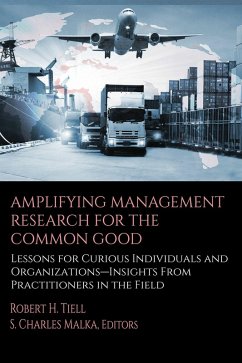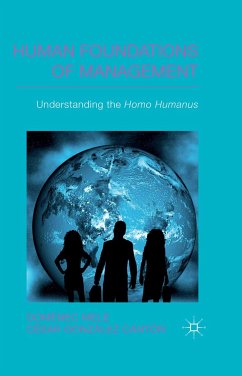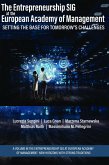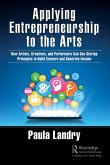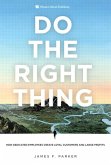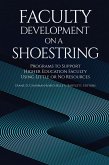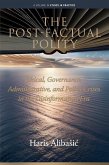How can management research promote a more applicable and a more transparent knowledge for the benefit of individuals and organizations? Looming large over this question is the challenge of repurposing management research for improving public good. Co-edited by R. H. Tiell and S. C. Malka, the title of the book says it all - Amplifying management research for the common good: Lessons for curious individuals and organizations - Insights from practitioners in the field. In this book, we sought to bridge the chasm that separates the non-academic audience from the typically less-accessible scientific journals. We attempted to make empirical evidence more inclusive, impactful and public good relevant for the non-academic stakeholders that live and work in the broader community. For that purpose, we made available to the reader and to our chapter contributors a collection of published papers, some authored by the editors of this book, and others co-authored with other researchers. The papers cover a diverse set of business topics all of which we believe hold much relevance for management today. Providing the reader with their insights on subject matter along with lessons and practical recommendations, we sought experts in the field that can build on empirical research in various areas of management and then synthesize and broaden it through their expertise and work experience.As a trigger, we aligned each contributor with one or two empirical papers based on their background, interests, and professional experience. Using the assigned papers as a springboard, we asked each author to identify emerging themes around which they can build their chapter. We wanted them to think of the book audience: non-academicians comprised of interested and curious individuals, managers, and their organizations. And, we wanted our authors to elaborate on practical lessons, suggestions, and recommendations that can make a difference in the lives of the book audience. Our effort resulted in a collection of chapters covering a wide range of topics from supply chain challenges in Central America, to life changing long-term effects of the pandemic, from delivery of services for mental health and suicide, to logistics capabilities pre-post Ivan in the Cayman Islands, from the new workplace, to labor market shortages, and from new workforce service pathways, and the optimization of talent, to the impact of recent recessions on the youth and the unemployed, and the assessment of C-suit level leaders. We would like to believe that the breadth of the topics covered and the amount of information being disseminated through the book chapters are meaningful, practical, and relevant to a wide audience of curious readers.ENDORSEMENTSI highly recommend "Amplifying Management Research for the Common Good" to anyone interested in shaping the workplace of the future. Written by a team of experts, this book provides a compelling argument for why free and open access to research is essential for improving workforce outcomes. The authors explore how the current paywall system limits the dissemination of critical research findings and prevents practitioners and policymakers from accessing the latest insights and innovations. As we exit a global pandemic and enter a re-shaping of the world of work the nation's talent development ecosystem must innovate and scale to the need. By advocating for open access to research, the authors advance the forming of a more effective and equitable workforce development system. This book is a must-read for anyone looking to contribute to that cause. - Rick Maher, Adaptive Human CapitalSomeone once observed that a crisis is a horrible thing to waste. The essence of this advice is that a crisis will always have the potential for the wise and curious to draw lessons and extract prescriptions. Tiell and Malka have produced a book reflecting not only their curiosity and wisdom, but also their desire to help all who follow their prescriptions. The Covid-19 pandemic was a life altering crisis. We should be thankful that they have not "wasted" the crisis, thus helping us improve our personal and professional lives. - Lyle Sussman, University of LouisvilleEmployers and employees have experienced an amazing number of challenges and new opportunities during the past 3 years. Pre-Pandemic employers' challenges were primarily focused on low unemployment, managing wages and uncertainty for their future workforce. Employees were primarily working 9 to 5, in an office building or manufacturing facility and possibly thinking about their futures. As our society moves toward a Post-Pandemic work environment, employers have the same Pre-Pandemic challenges, but with a workforce that has shrunk faster than anticipated and have adjusted their priorities of work/life balance and workplace preferences. Whether your responsibilities involve Supply Chain, Production, Logistics, Accounting, Finance, Training/Education, Hiring/Retaining/Firing personnel or you simply are seeking to pursue career and professional growth. Everyone has likely experienced some amount of workplace change during the past several years. The insights and perspectives shared by each author in this book are reminders of the complex business challenges employers face today and will continue to face in the foreseeable future. Thank you for compiling and sharing these insights and perspectives! - Michael Wolf, PrideStaff Louisville
Dieser Download kann aus rechtlichen Gründen nur mit Rechnungsadresse in A, B, BG, CY, CZ, D, DK, EW, E, FIN, F, GR, HR, H, IRL, I, LT, L, LR, M, NL, PL, P, R, S, SLO, SK ausgeliefert werden.
Hinweis: Dieser Artikel kann nur an eine deutsche Lieferadresse ausgeliefert werden.

